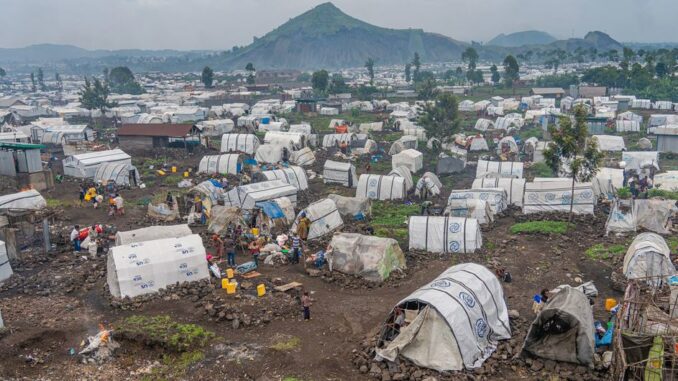
Families returning to their communities in eastern Democratic Republic of Congo (DRC) after months or years of displacement are confronting destroyed homes, lost livelihoods, and dire humanitarian needs as violence continues to escalate in the region.
“These are families that were already displaced before the crisis that has rocked the city of Goma and North Kivu more broadly,” explains Hercules Kipa, Head of Emergency Programs for Concern, speaking from Kibumba. “Following this latest crisis, these communities returned to their areas of origin. These families that are returning home don’t have land to cultivate and have lost their sources of income. They are home, but their humanitarian needs continue.”
The most recent wave of violence and subsequent dismantling of internally displaced persons (IDP) camps have forced over one million people into increasingly precarious living conditions. While humanitarian organizations are operating in the region, their efforts are severely hampered by significant funding shortfalls and security concerns.
Mediatrice Busogi, who recently returned to Kibumba, describes the devastating scene upon arrival: “When we returned, we found many dilapidated houses. The luckiest found their houses without doors and without roofs. We used tarpaulins to cover the houses and crammed into them with other families and that’s how we live so far.”
For many returnees, the journey home marks only the beginning of another struggle. In Sake, another conflict-affected area in North Kivu, displaced community representative Byamungu Rukera outlines the pressing needs: “If we are lucky enough to return to our village, we will need to rehabilitate or rebuild our houses, have food, [and] household items until we can harvest the produce from our fields.”
The United Nations has warned that the situation in the DRC remains one of the most complex and underfunded humanitarian crises globally, with more than 25 million people in need of assistance. Despite the scale of suffering, the crisis continues to receive limited international attention and resources.
Aid organizations stress that without sustained support for both immediate relief and longer-term recovery, these returning families face a perilous future even in their home communities, perpetuating cycles of vulnerability and displacement.
